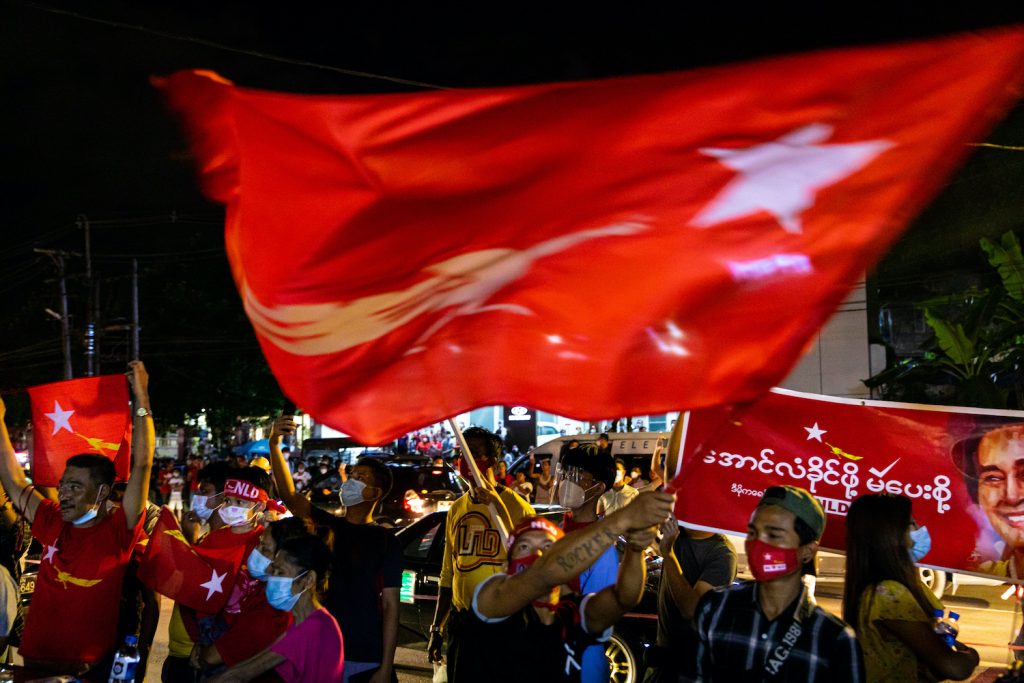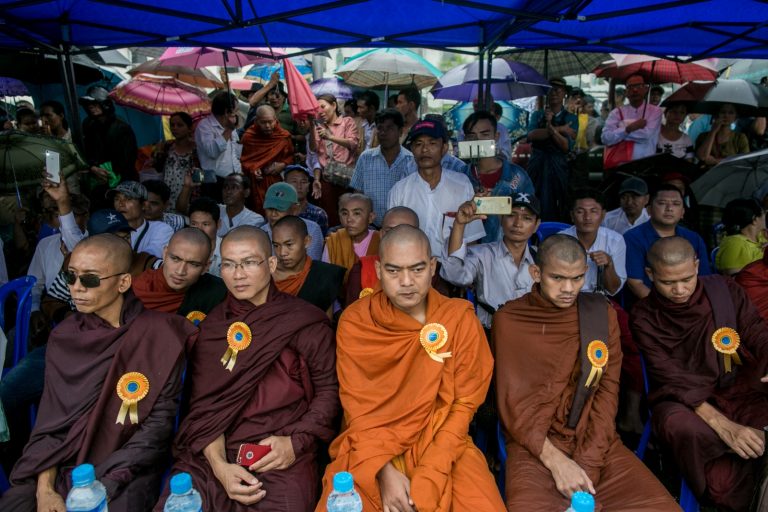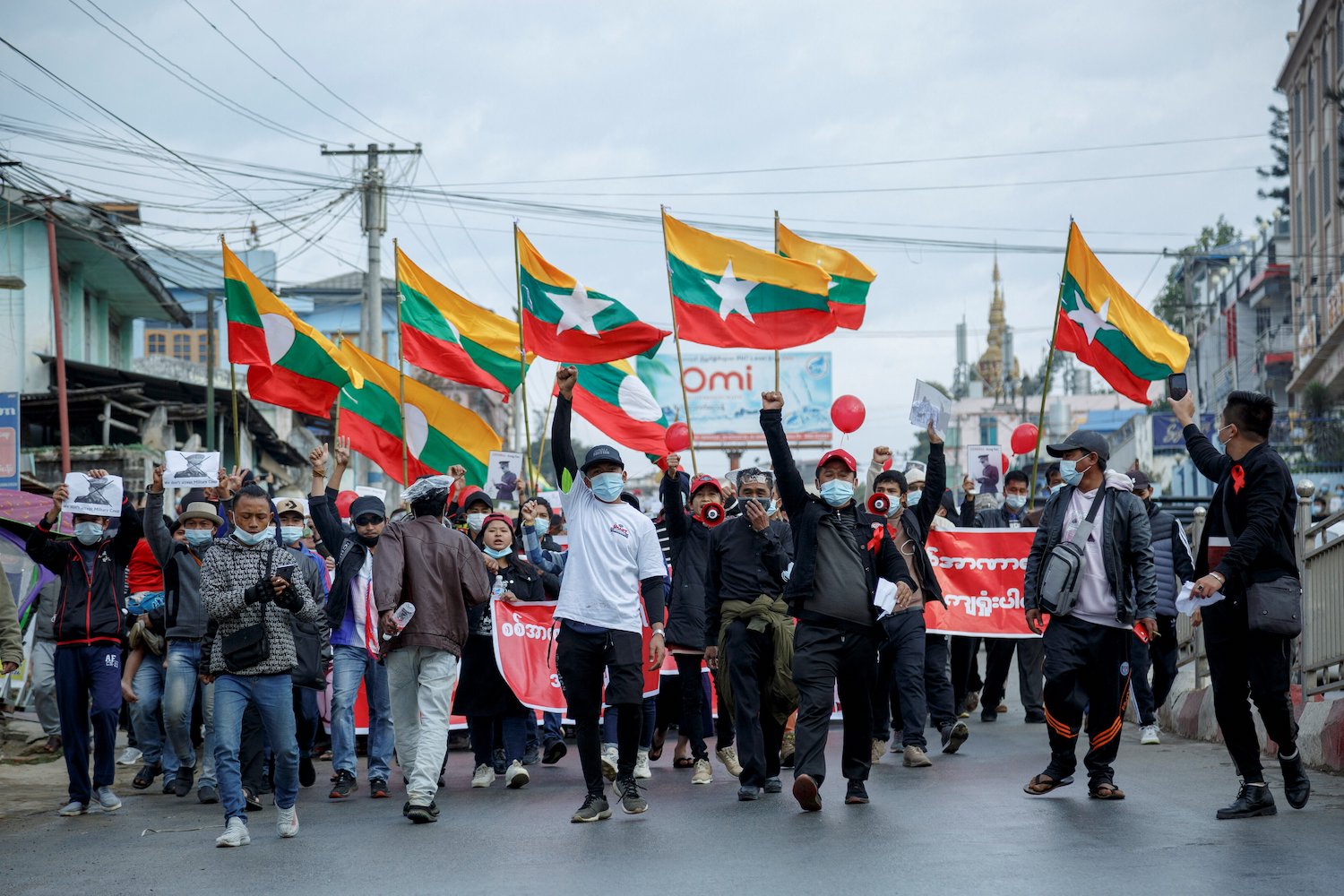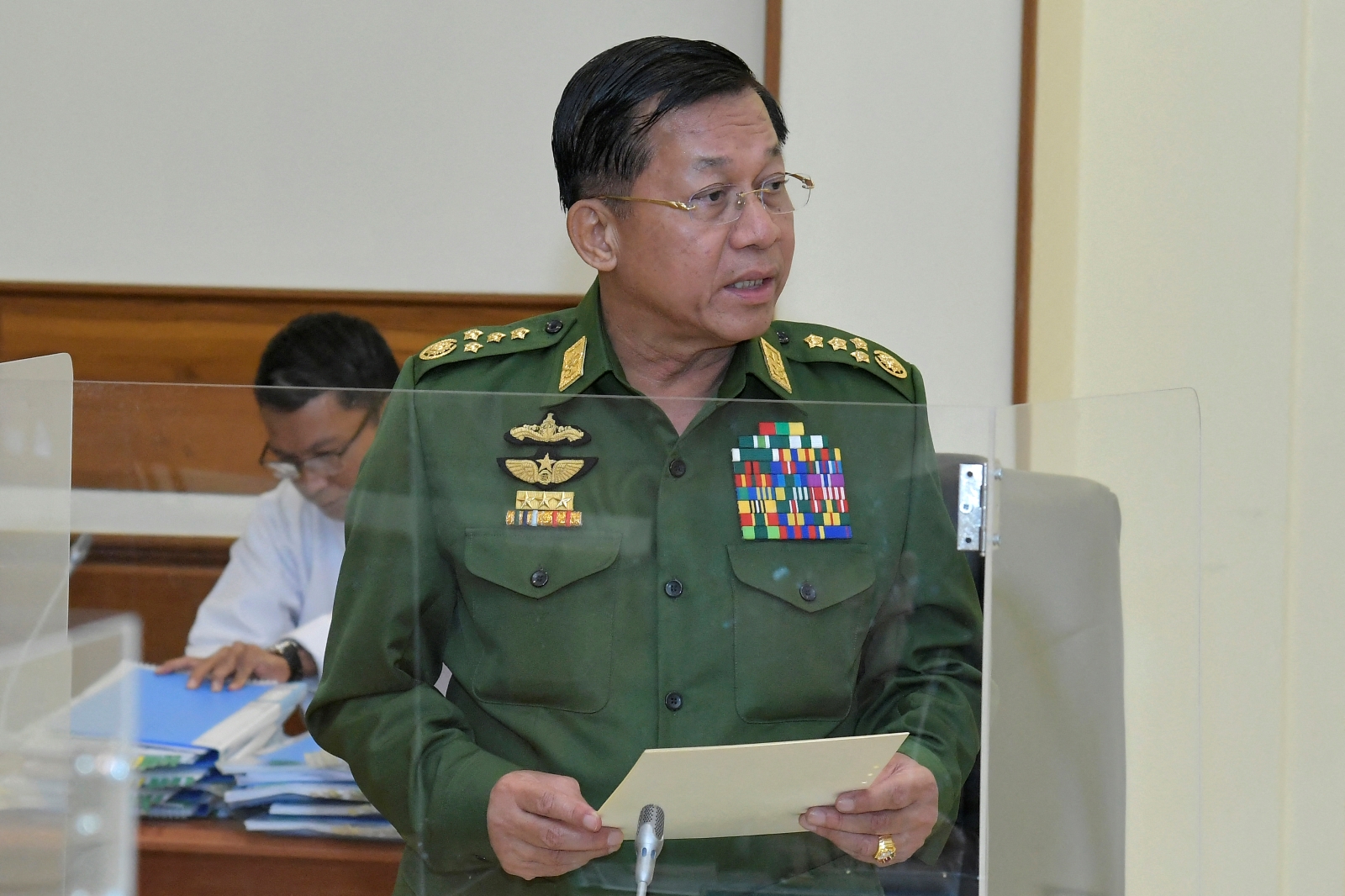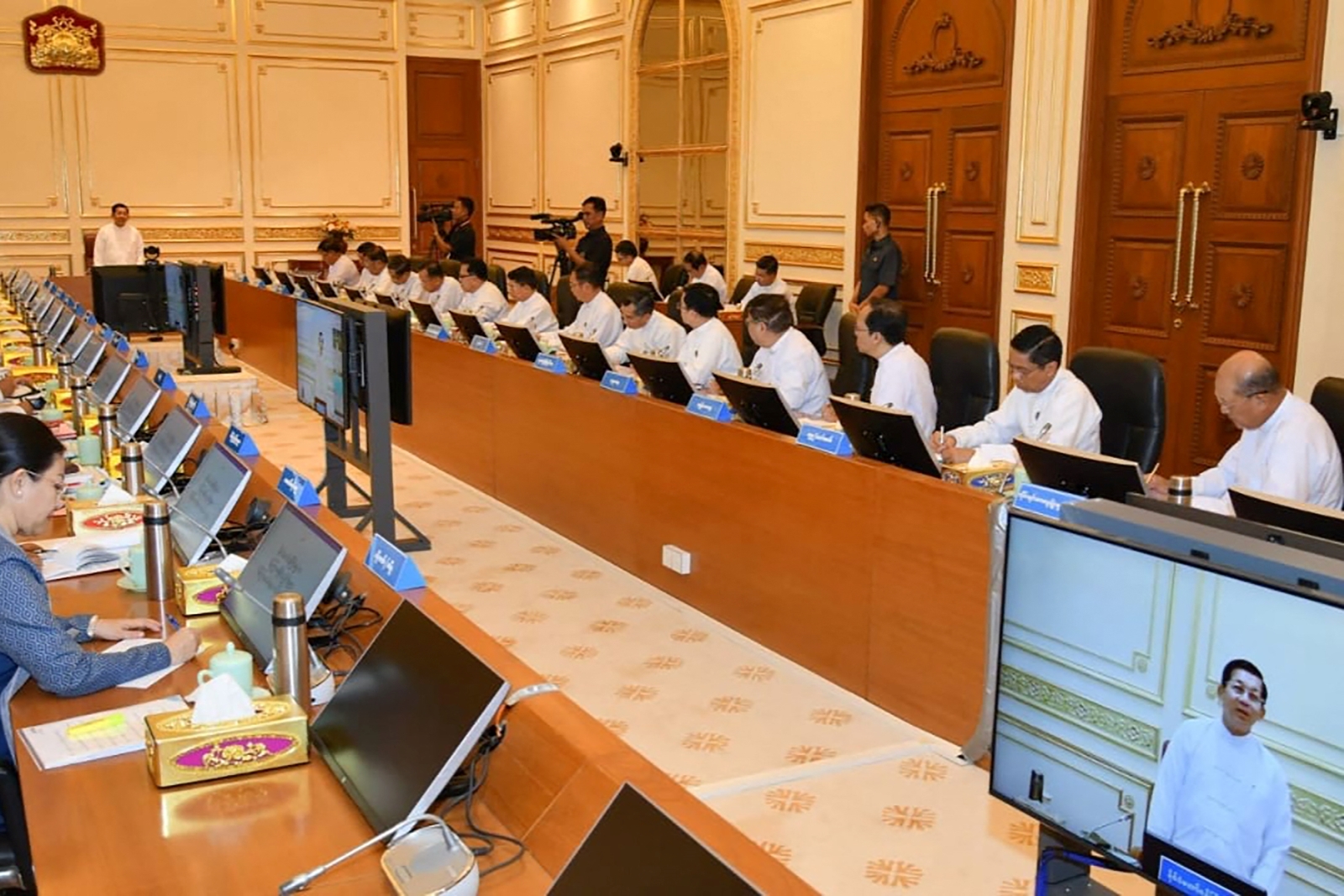The popularity of State Counsellor Daw Aung San Kyi was certainly a factor in the NLD’s resounding election success, but so too was fighting corruption, progress in economic development and an ill-advised intervention by the Tatmadaw chief.
By SITHU AUNG MYINT | FRONTIER
With the ballots finally counted, the National League for Democracy has easily won more than the 322 seats it needed in the Pyidaungsu Hluttaw to elect the president and form the next government. The incumbent party won 396 of the 476 contested seats in the Union Parliament – six more than in its 2015 landslide, and just over 83 percent of all elected seats. The remaining seats are split among 16 parties and several independents. Some international observers have attributed the NLD’s triumph to the popularity in Myanmar of party chair Daw Aung San Suu Kyi, but it’s not that simple.
Let’s begin with the Union Election Commission. In 2015, the commission was chaired by U Tin Aye, a former lieutenant general and close friend of former general and then-President U Thein Sein, who appointed him to the role in February 2011. All UEC members under Tin Aye were former Tatmadaw officers. The UEC that oversaw the 2020 election was appointed by President-elect U Htin Kyaw in March 2016, shortly before the NLD government took office. He chose a civilian technocrat, U Hla Thein, as UEC chair, and the other commissioners were also all civilians. They have led an altogether more transparent process.
For instance, in October 2019, parliament approved a UEC amendment to election bylaws that banned polling booths in military bases. The UEC made the change so that Tatmadaw personnel and their families could vote with civilians. The change, which meant that more voters could cast ballots freely and fairly, worked to the advantage of parties such as the NLD.
Secondly, it is important to understand that Aung San Suu Kyi’s popularity is not due just to her personally but to the performance over the last five years of the party she leads. For example, when The Gambia took Myanmar to the International Court of Justice over the alleged genocide of Rohingya Muslims during the Tatmadaw operation in northern Rakhine State in late 2017, she travelled in her capacity as state counsellor to The Hague to deny the accusation on behalf of the state. She did not go there to deny the accusations against the Tatmadaw, but instead to acknowlede that war crimes may have occurred but did not amount to genocide. The Myanmar people admired her bravery in appearing before the ICJ.
Then, when COVID-19 first emerged in Myanmar in March, Aung San Suu Kyi became chair of the committee appointed to manage the pandemic. Myanmar is a poor country with inadequate health care, but the government’s handling of COVID-19 has been praised by the international community, and the people heeded the instructions of the Ministry of Health and Sports. Citizens appreciated the efforts taken by the government in its response to COVID-19 to minimise adverse effects on the economy as well.
And let’s not forget that past military governments were riddled with corruption, which enriched many of the senior officers appointed to ministerial positions. The people regarded them as “thieves” and pledged never to vote for them or their political manifestations in the future. Aung San Suu Kyi’s government, however, has been relatively unblemished by corruption. It has prioritsed fighting corruption, and the people have seen noticeable improvements.
For example, roads and bridges built under the NLD government are of superior quality to those built under governments formed by former and serving generals. People are deriving direct benefits from the effective, efficient and corruption-free use of state funds. In Mandalay, the country’s second biggest city, an effectively-managed city administration has brought significant development. It is difficult to find anyone in the city who would vote for any party but the NLD.
There is also the matter of China. Most in Myanmar do not like China and regard it as a bully that is only interested in exploiting the country. Under military rule, China gave backing to dictators who suppressed the people and sold off the nation’s natural resources.
The NLD government has given less priority to China in economic development, and its balanced relationship with Japan, South Korea and India is admired domestically.
Some domestic and foreign media have criticised the NLD for having failed to achieve election promises it made in 2015, such as achieving peace and amending the 2008 Constitution. However, the people do not blame the NLD for these broken promises. They blame the stalled peace process on the Tatmadaw and the ethnic armed groups that are fighting, and stalled constitutional reform on the effective veto that that unelected military MPs – who comprise 25pc of the nation’s hluttaws – have over amending the charter. The vote for the NLD does not seem to have diminished because of these two issues.
Next to consider is the performance of their main opposition, the USDP – a Tatmadaw creation. Instead of focusing on campaigning to seek voters’ support, the USDP wasted a lot of time complaining about the UEC. Despite its defeat in 2015, the party has made no attempt to reform either its policies or practices, instead continuing to ally itself with the Tatmadaw – one of the least popular institutions among voters. Meanwhile, the NLD was also careful to select candidates that were popular with residents of constituencies that the USDP had won in 2015. The success of this strategy can be seen in the fact that the number of seats held by the USDP in the Pyidaungsu Hluttaw has slumped from 41 to 33.
Ethnic parties that consolidated in the hope of avoiding the split vote that hurt them in 2015 have been disappointed with the low number of seats they’ve won. One reason is that ethnic voters do not always live in the same constituencies that these parties run in. But another is that the NLD was careful to choose ethnic candidates in border states that appeal to local voters. Voters in these same constituencies have also benefited from local development projects under the NLD government.
And a significant, though inadvertent, contribution to the NLD landslide came from none other than Tatmadaw commander-in-chief Senior General Min Aung Hlaing in the weeks and months before the election. During visits to military bases, Min Aung Hlaing urged Tatmadaw personnel to vote for the party that would guard “race and religion” and who valued the involvement of the Tatmadaw in politics. He even met with several parties, including the USDP, which some read as his desire to lead a military-run government. In another intervention, Min Aung Hlaing lambasted the UEC for what he said was its weak performance and said the government must take responsibility if the election was not free or fair. He even suggested that he might not accept the result of the election. These comments sparked fears of a military coup d’etat, to which the riposte at the ballot box was a record turnout that favoured the NLD, despite concerns about COVID-19. After the election, leaders of the Karen National Democratic Party and Kayah State Democratic Party even acknowledged that their participation with about 30 other parties including the USDP in an August meeting with Min Aung Hlaing had cost them votes.
As we can see, there are many more reasons for the NLD’s resounding election victory than the people’s trust and respect for Aung San Suu Kyi.


